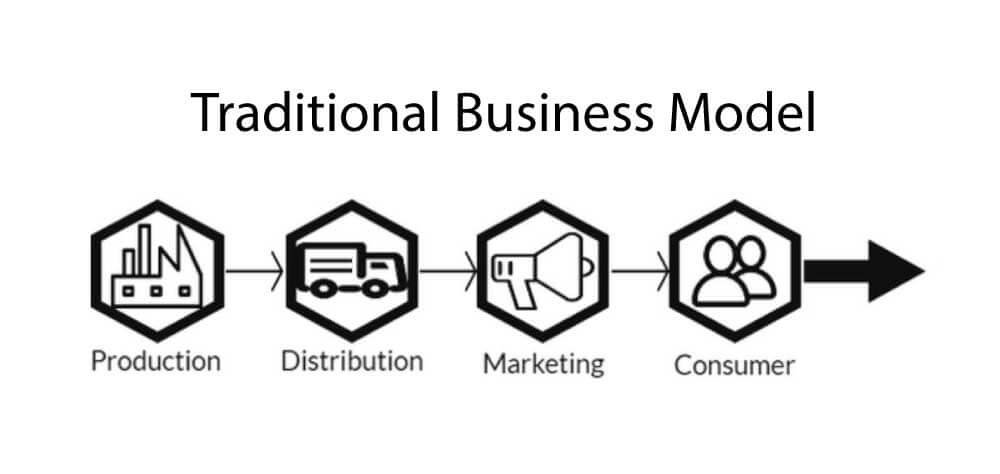8 Reasons Why Traditional Business is a Complex Business Model
Explore the reasons why traditional business is a complex business model, from extensive initial investments to limited scalability. Understand the challenges they face in adapting to market dynamics.
Traditional business refers to a conventional business model that operates using physical infrastructure, face-to-face interactions, and offline marketing methods. In today’s rapidly evolving technology and digital landscape, traditional businesses face various challenges and complexities that require adaptation and transformation.
Here, I will try to discuss some common reasons why traditional business is a complex business model in the age of technology. Hope, it will help you explore some ideas to adapt your business to technology and the digital world.
What is Traditional Business
A traditional business is a conventional business that operates in physical locations and sells products or services to customers in person. It has a physical store or office where customers come to buy products or services.
They use methods like print ads, billboards, and word-of-mouth to promote their business. Traditional businesses serve a specific local area. There are several types of traditional businesses.
Here are some examples of traditional business:
- Local stores;
- Restaurants;
- Salons;
- Grocery Shops, etc
You may also read The most profitable online businesses.
Why Traditional Business is a Complex Business Model
The traditional business model is a complex business model for several reasons. Firstly, it involves extensive initial investments and high fixed costs. Moreover, geographic barriers, limited scalability, and hierarchical structure make it almost challenging to adapt to competitive market conditions in today’s business environment.

To gain further insights, let us explore some key factors contributing to this complexity.
1. Extensive Initial Investment
Starting a traditional business often requires a significant initial investment. The investment money includes renting a shop or office space, decorating, purchasing furniture, hiring employees, marketing, raw material or stock, and more.
See, here are some expenses you don’t need when you are starting an online business. Renting an office or shop space in any market cost too much. Besides, you need decoration and furniture.
This high investment can be a barrier for many people who want to start a new business.
You may also read about small business ideas in Bangladesh with low investment.
2. High Fixed Costs in Traditional Business
Traditional businesses have some unavoidable fixed costs, such as rent, equipment, and employee salaries. These expenses must be paid even though your selling level is zero.
Especially during the low-demand period, maintaining these expenses become difficult for many businesses. At this period, managing and optimizing these ongoing costs can be challenging, especially for small businesses with limited resources.
Also read: Best Free Online Accounting Software for Small Business
3. Geographic Constraints
Traditional businesses are typically tied to a physical location, which arises some limitations. The location’s demographic, competition, and local economy directly impact the success of a business.
Expanding to new markets often involves significant investments, logistical challenges, and potential risks.
4. Intense Competition
Traditional businesses often face hard local competition, both from established players and emerging competitors. Competition makes the business challenging to stand out in the market.
To overcome the competition, business owners need to continually invest in market research, find and solve problems, product development, marketing, and after-sale services.
5. Limited Scalability of Traditional Business
It is challenging to scale a traditional business due to its resource constraints and physical infrastructure. Expanding a traditional business often requires new investment, inventory, employees, and new locations.
Besides, scaling business operations while maintaining quality and customer satisfaction is also difficult for some businesses. It requires careful planning and execution.
6. Long Sales Cycles
The sales cycle in traditional businesses can be lengthy, particularly for high-value products or services. It may take a considerable amount of time to build relationships with potential customers, negotiate contracts, and close deals. This extended timeframe can lead to cash flow challenges and require careful financial planning and patience.
7. Regulatory Compliance
Traditional businesses are subject to various regulations and compliance requirements, depending on the industry and location. Following these regulations and ensuring compliance can be time-consuming, complex, and costly.
Business owners must stay updated with legal requirements, obtain licenses and permits, and maintain proper documentation to avoid fines or legal issues.
8. Technology Adoption
Businesses must adopt new technologies to survive the competition. Traditional businesses often struggle to adopt and integrate new technologies. This can hinder their ability to grow, improve efficiency, and meet evolving customer expectations.
Adopting new technology effectively may require additional investments in infrastructure, equipment, staff training, and overcoming resistance to change.
FAQs
The traditional business model refers to a structure in which a company operates physically, typically with a physical storefront or office space, to offer products or services to customers. Traditional business examples are local stores, restaurants, salons, grocery shops, etc.
Traditional businesses can be difficult to form due to high startup costs, operational complexities, limited geographical reach, intense competition, and always-changing consumer behaviour.
Traditional businesses have a physical presence, operate within set hours, and serve a local audience. Online businesses, on the other hand, are digital-based, operate 24/7, have a global reach, and interact with customers through digital channels.
Bottom Line
The traditional business model has inherent complexity due to the above-described factors and some other reasons. These complexities can cause significant barriers and challenges for traditional businesses to adapt to changing market environment.
To avoid these complexities, business owners must plan carefully in order to adapt to changing market conditions. They should also embrace new technology, invest in market research, and explore innovative strategies to thrive and remain competitive.






